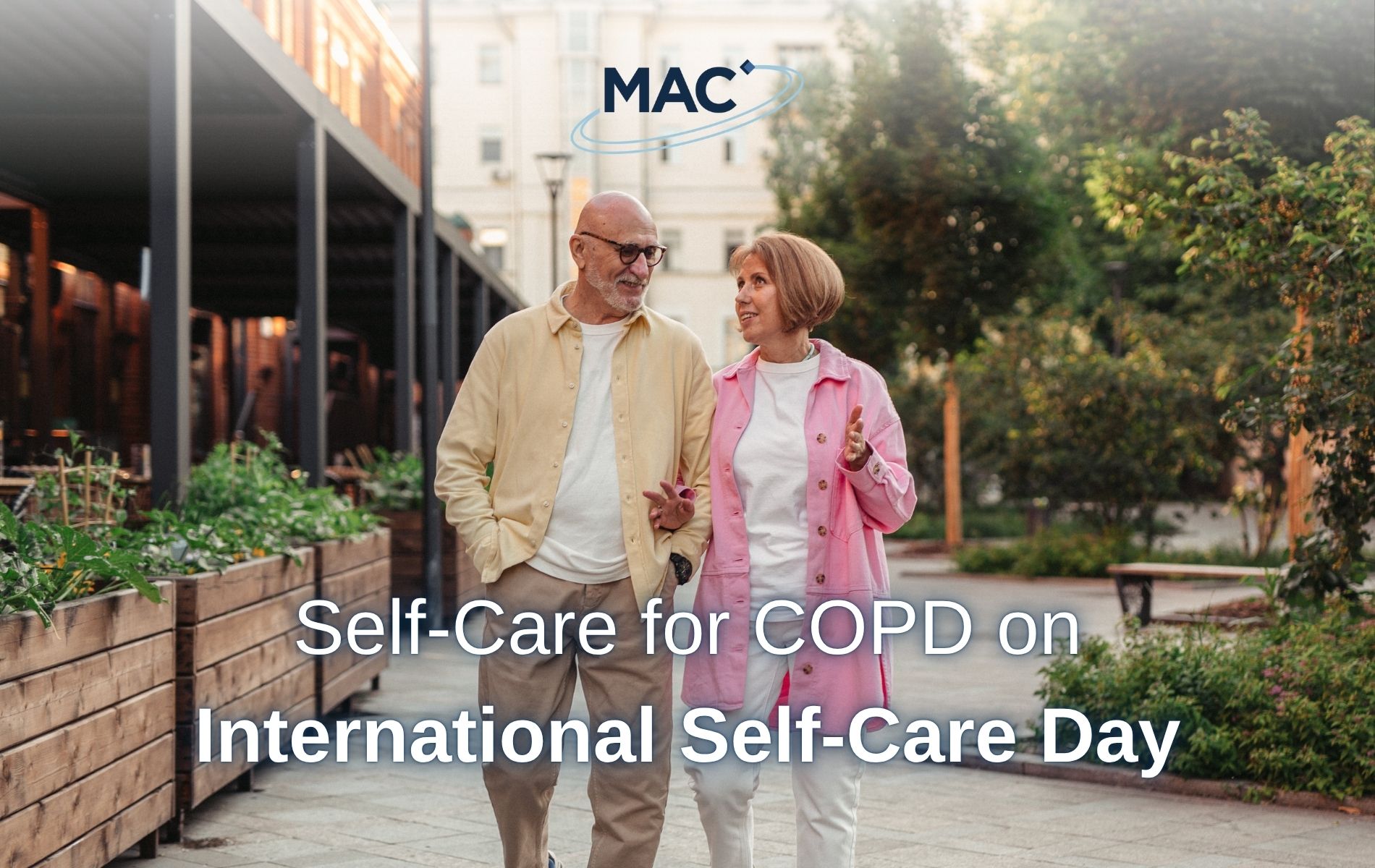Every year on the 24th of July, the world celebrates International Self-Care Day, an opportunity to remind everyone that self-care is not a luxury, it’s a necessity.
For the 1.2 million people in the UK living with Chronic Obstructive Pulmonary Disease (COPD)1, self-care isn’t just about feeling better, it’s about living better, longer, and more independently.
What is COPD?
COPD is a progressive lung condition that includes chronic bronchitis and emphysema. It affects breathing, energy levels, and overall quality of life. Sadly, around 30,000 people die each year from COPD in the UK, making it the second biggest cause of death from lung disease2, after lung cancer and followed by pneumonia.
While there’s no cure, self-care plays a vital role in managing symptoms, preventing flare-ups, and improving long-term outcomes.
Breathing Techniques for COPD
Breathing exercises like pursed-lip breathing and diaphragmatic breathing can help manage shortness of breath and improve oxygen exchange. Practicing these breathing techniques for COPD daily can make a big difference during physical activity or stressful moments.
Research has shown that patients who were hospitalised for their COPD showed a significant improvement when using breathing exercises3.
Staying Active with COPD
Exercise might seem daunting, but gentle, regular activity strengthens respiratory muscles and boosts stamina. Walking, stretching, or pulmonary rehab programs tailored to your ability can help you stay mobile and independent.
Always consult your healthcare provider before starting a new routine. The NHS offer Pulmonary Rehabilitation programmes for those living with lung conditions to help with symptoms; 90% of patients who complete these programmes report having higher activity levels, higher exercise levels, and an improved quality of life4.
Creating a Lung-Friendly Environment
Avoiding triggers is key. That means no smoking, avoiding second-hand smoke, and minimising exposure to dust, fumes, and strong scents. Using air purifiers and keeping your home well-ventilated can also reduce irritants.
Diet Changes for COPD
A balanced diet supports your immune system and energy levels. Small, frequent meals can prevent bloating, which can make breathing harder. Focus on anti-inflammatory foods like fruits, vegetables, whole grains, and lean proteins such as fish.
Manage Stress and Mental Health
Living with a chronic illness can be emotionally taxing. In a report of hospitalisations from COPD exacerbations, around 60% of respondents stated that they experienced psychological distress in their everyday lives5. Mindfulness, meditation, and support groups can help manage anxiety and depression, which are common in people with COPD. Don’t hesitate to seek professional help if you’re struggling.
Medication for COPD
One of the most important self-care habits for COPD is medication adherence. Whether it’s inhalers, corticosteroids, or oxygen therapy, taking medications exactly as prescribed helps reduce inflammation, open airways, and prevent exacerbations. Keep a medication schedule or use reminders to stay on track.
For many living with COPD, however, current medications may not provide substantial relief from their symptoms.
Here at MAC Clinical Research, we are committed to improving quality of life for people living with COPD through clinical trials investigating potential new treatments. If you are aged 40 to 75 with COPD, you could be eligible to take part in our latest COPD clinical trial.
Eligible participants will receive up to £2,425 for their time and commitment, plus reasonable travel expenses or transport to clinic visits is provided. MAC can also accommodate for caregivers to attend clinic visits as chaperones.
For more information and to see if you could be eligible, register your interest via our COPD study page.
1 NHS – Digital service to manage high-risk chronic obstructive pulmonary disease (COPD) patients
3 European Respiratory Review – Breathing techniques to reduce symptoms in people with serious respiratory illness: a systematic review
4 NHS England – Pulmonary rehabilitation
5 Journal of the COPD Foundation – The Association of Low Income and High Stress with Acute Care Use in COPD Patients




